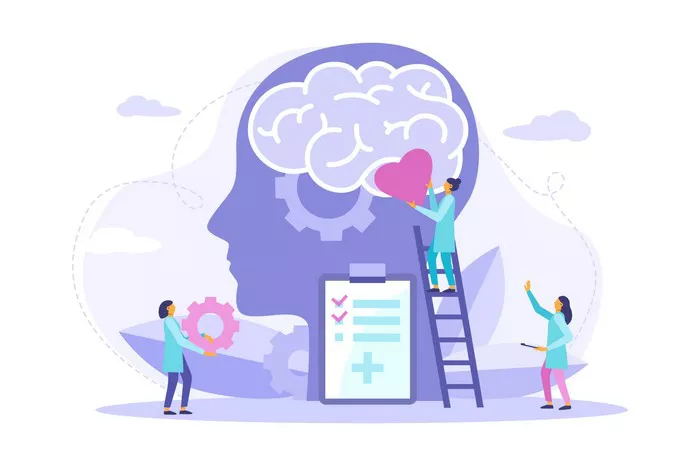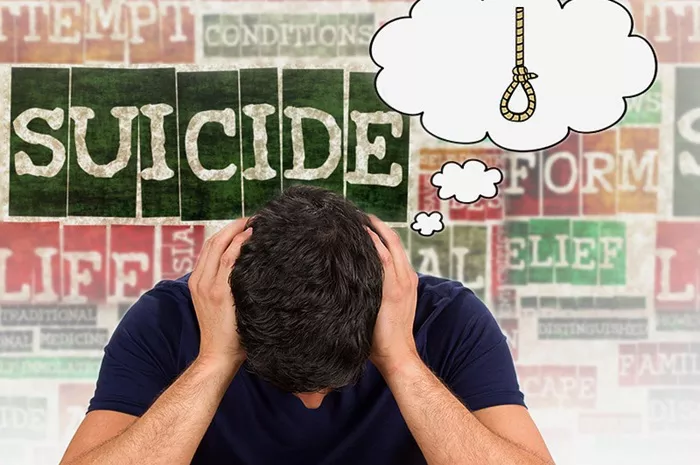Mental health, an integral part of overall well-being, often lacks the visibility of physical health issues, making it challenging to recognize when someone is struggling. This article aims to demystify the subtle and not-so-subtle signs of mental health issues, providing a comprehensive guide for friends, family, and colleagues to identify and support individuals in need.
The Importance of Recognizing Mental Health Issues
The early identification of mental health struggles is crucial. It can lead to timely intervention, prevent the progression of mental disorders, and significantly improve the quality of life for those affected. Understanding and recognizing the signs of mental health issues can also reduce stigma and promote a more supportive environment, encouraging individuals to seek help without fear of judgment.
Common Mental Health Disorders and Their Impact
Before delving into specific signs, it’s essential to briefly understand common mental health disorders and their potential impact on individuals’ lives. Disorders such as depression, anxiety, bipolar disorder, and schizophrenia can profoundly affect one’s thinking, feeling, mood, and behavior. Each has unique symptoms but can significantly interfere with daily functions and relationships.
Signs of Depression
Depression is more than just feeling sad; it is a serious mental health condition that requires understanding and medical care. Here are some signs that someone might be experiencing depression:
Persistent Sadness and Hopelessness: A deep, prolonged sadness that doesn’t seem to improve can be a primary indicator of depression.
Loss of Interest in Activities: Pay attention when someone no longer finds joy in hobbies or interests that used to excite them.
Changes in Appetite and Sleep Patterns: Significant weight loss or gain, insomnia, or excessive sleeping can all be signs of depression.
Fatigue and Low Energy: A noticeable decrease in energy, where even small tasks become exhausting, is common.
Feelings of Worthlessness or Excessive Guilt: Individuals may express unwarranted feelings of guilt and low self-esteem.
Difficulty Thinking, Concentrating, or Making Decisions: Depression can cloud thinking and make decision-making challenging.
Recognizing Anxiety Symptoms
Anxiety is characterized by an excessive and persistent worry that is hard to control. Here are some of the symptoms that can indicate someone is struggling with anxiety:
Excessive Worrying: An overwhelming amount of worry about everyday decisions or events, out of proportion to the actual impact of those events.
Restlessness or Feeling On Edge: A noticeable inability to relax or feelings of being constantly ‘on alert.’
Fatigue: Similar to depression, anxiety can also lead to a pervasive tiredness.
Difficulty Concentrating: Anxiety can disrupt focus, leading to noticeable difficulties in concentration.
Irritability: Increased irritability is a common anxiety symptom, often overlooked.
Sleep Disturbances: Trouble falling asleep or staying asleep is common among those with anxiety.
Indicators of Bipolar Disorder
Bipolar disorder involves extreme mood swings, including emotional highs (mania or hypomania) and lows (depression). Recognizing these swings is key to identifying bipolar disorder:
Mood Swings: Severe highs and lows in mood, from excessive euphoria to deep depression, are a hallmark of bipolar disorder.
Increased Activity or Energy: During manic phases, an individual may show abnormally high energy, agitation, or an increase in goal-directed activities.
Rapid Speech: During a manic episode, you might notice unusually fast, frenzied, or pressured speech.
Impulsive Behavior: Engaging in high-risk behaviors, such as reckless driving or impulsive spending, can be a sign of mania.
Poor Decision Making: Decisions made during manic episodes may be unusually risky or harmful.
Signs of Schizophrenia
Schizophrenia is one of the more severe mental health disorders, characterized by profound disruptions in thinking, affecting language, perception, and the sense of self. Symptoms include:
Hallucinations: Hearing voices or seeing things that are not there is a common symptom.
Delusions: False beliefs not based in reality, such as thinking one has superpowers or is being watched, are common.
Disorganized Thinking: Incoherent or illogical thoughts and speech are signs of schizophrenia.
Extreme Withdrawal: Withdrawal from social interactions and activities to a significant degree.
Behavioral Changes Indicative of Mental Health Issues
Behavioral changes can often provide clues to underlying mental health issues. Here are some signs to watch for:
Withdrawal from Social Activities: A sudden or gradual withdrawal from social interactions or activities.
Changes in Performance at School or Work: Noticeable decline in academic or job performance.
Substance Abuse: Increased use of alcohol or drugs can be an indicator of mental health struggles.
Unexplained Physical Symptoms: Frequent headaches, back pain, or other physical complaints without a clear cause.
How to Respond to Signs of Mental Health Struggles
Recognizing the signs is only the first step. Here’s how to respond effectively:
Approach with Compassion and Understanding: Always approach the person with empathy, understanding, and without judgment.
Encourage Professional Help: Encourage the individual to seek help from a mental health professional. Offer to assist them in finding resources or making appointments.
Offer Support: Be there as a supportive friend or family member. Sometimes, just knowing someone is there can be a tremendous help.
Stay Informed: Educate yourself about mental health issues to better understand and support the person struggling.
Conclusion: A Call to Awareness and Action
Recognizing the signs that someone is struggling with mental health issues is essential for timely and effective intervention. As friends, family members, or colleagues, understanding these signs helps us provide the support and compassion needed to guide loved ones toward seeking professional help. By promoting awareness and reducing the stigma associated with mental health, we can create a supportive environment that encourages healing and fosters a healthier community.
[inline_related_posts title=”You Might Be Interested In” title_align=”left” style=”list” number=”6″ align=”none” ids=”8259,8148,8144″ by=”categories” orderby=”rand” order=”DESC” hide_thumb=”no” thumb_right=”no” views=”no” date=”yes” grid_columns=”2″ post_type=”” tax=””]

































